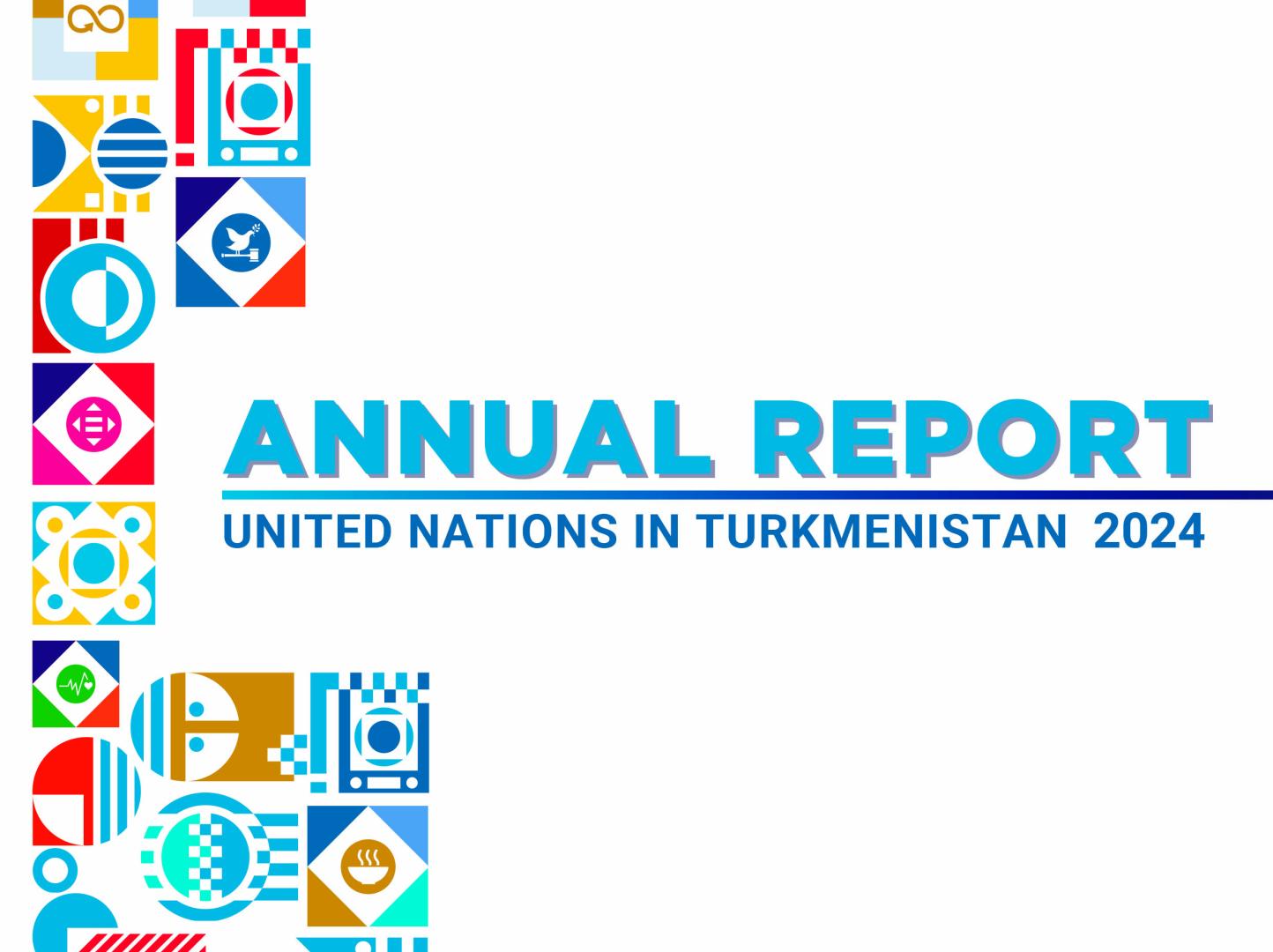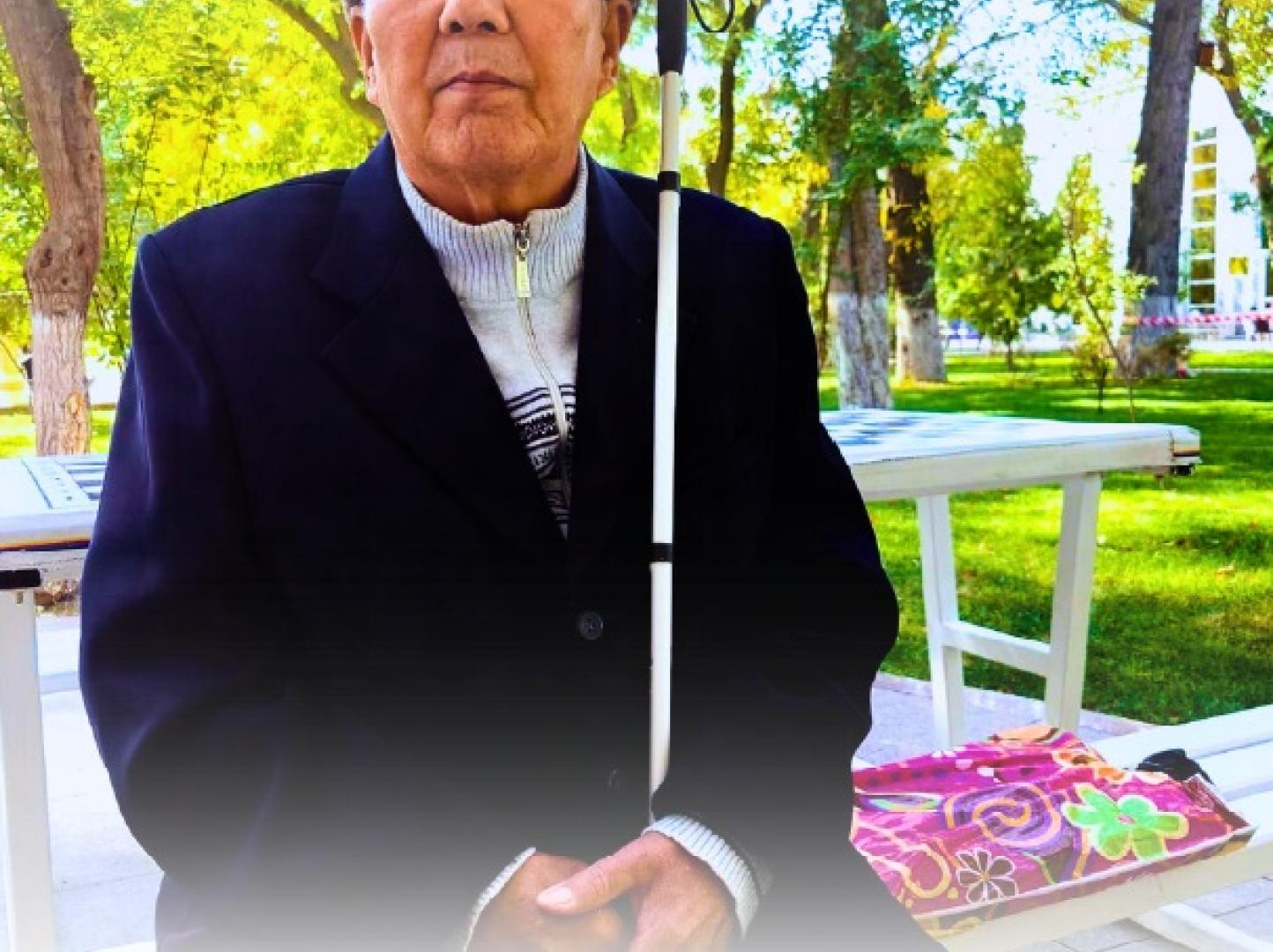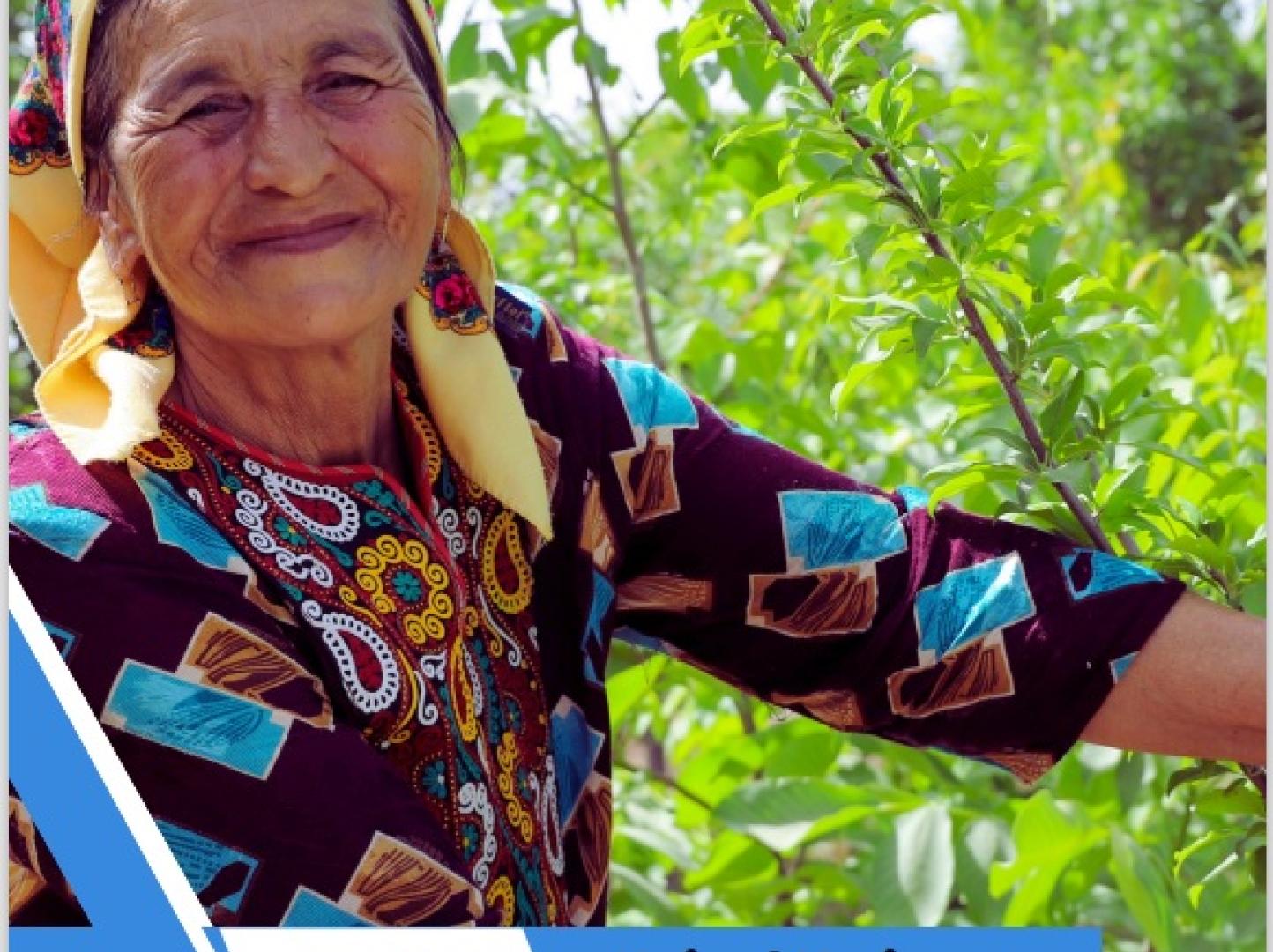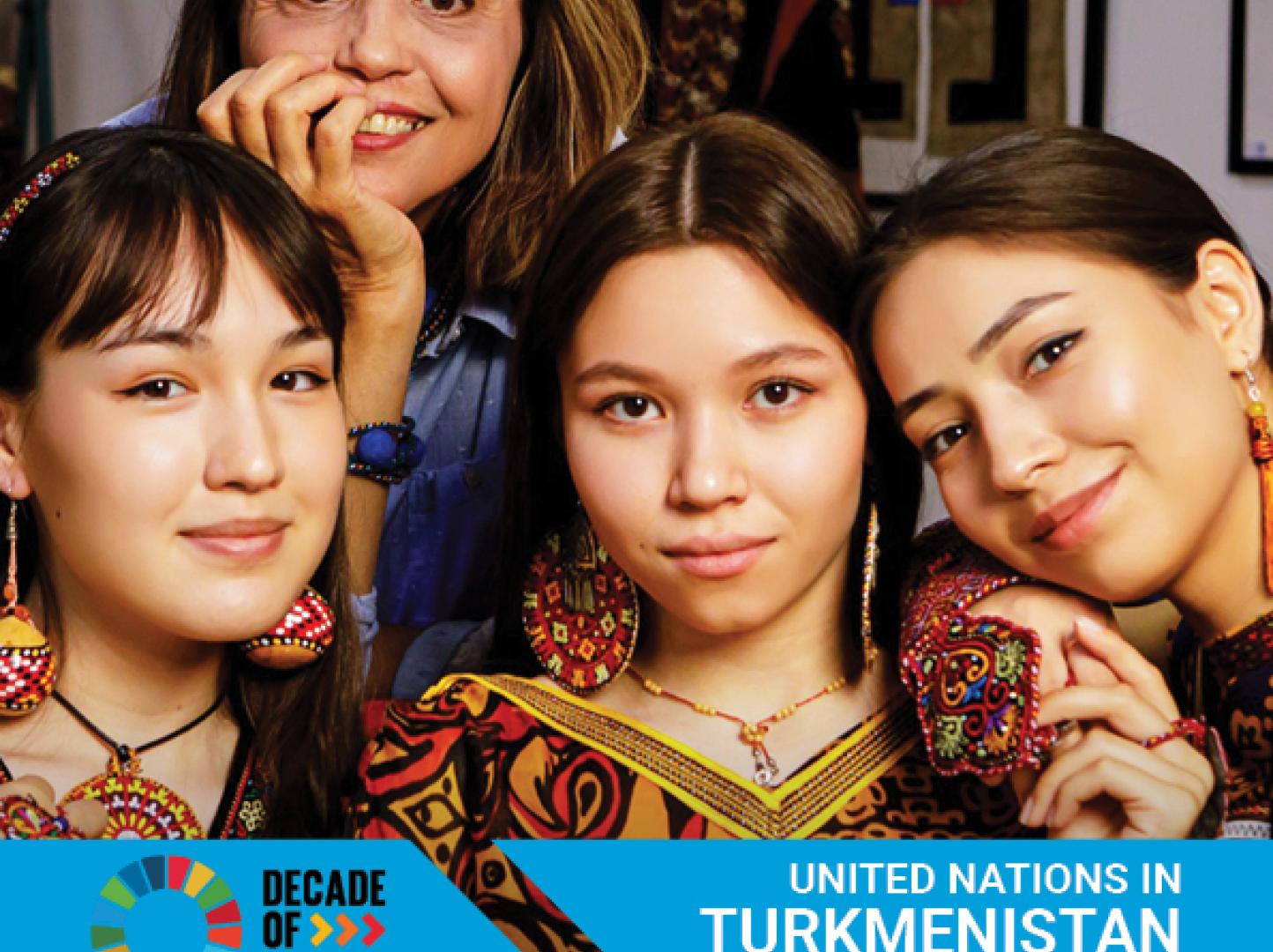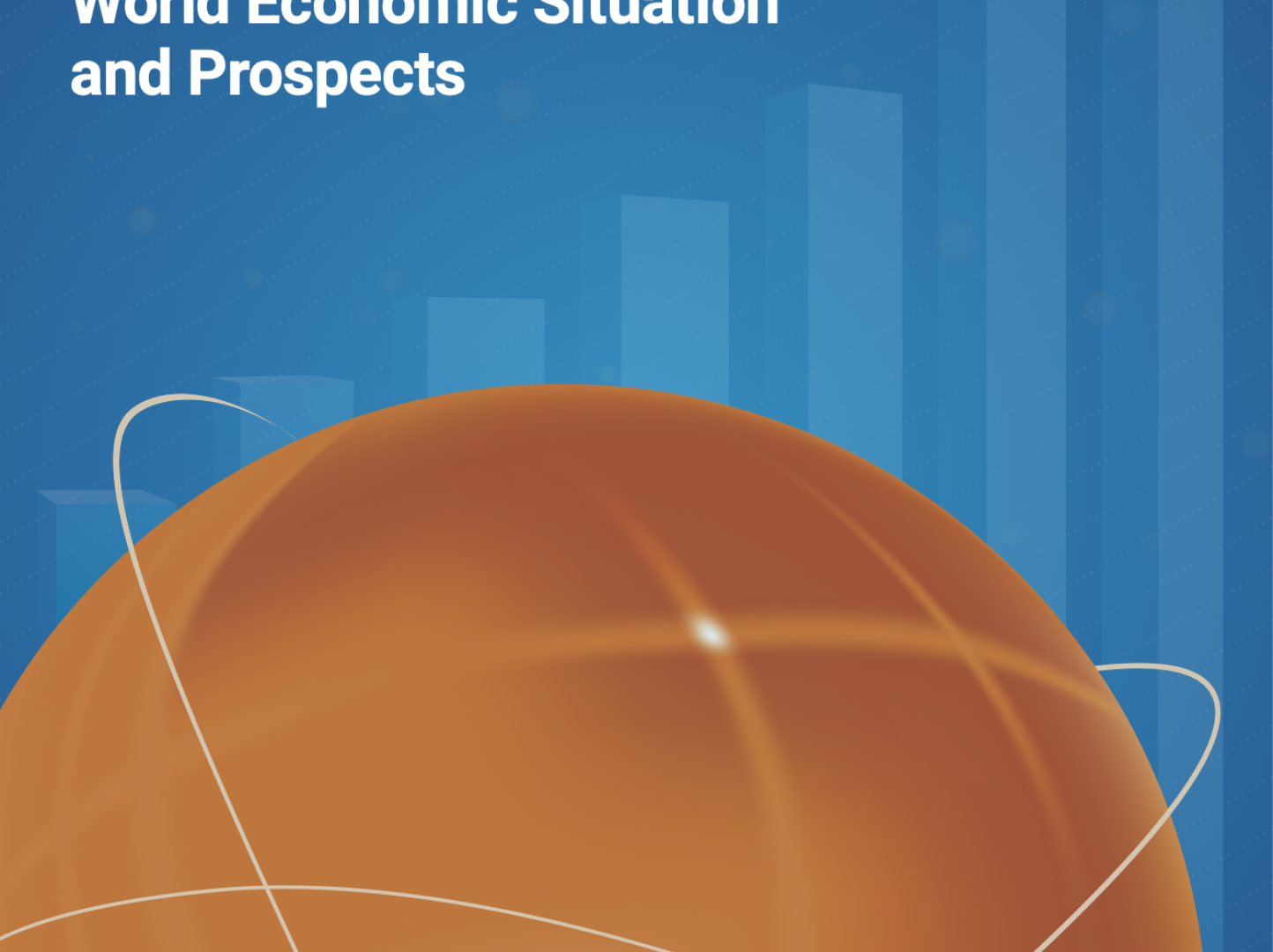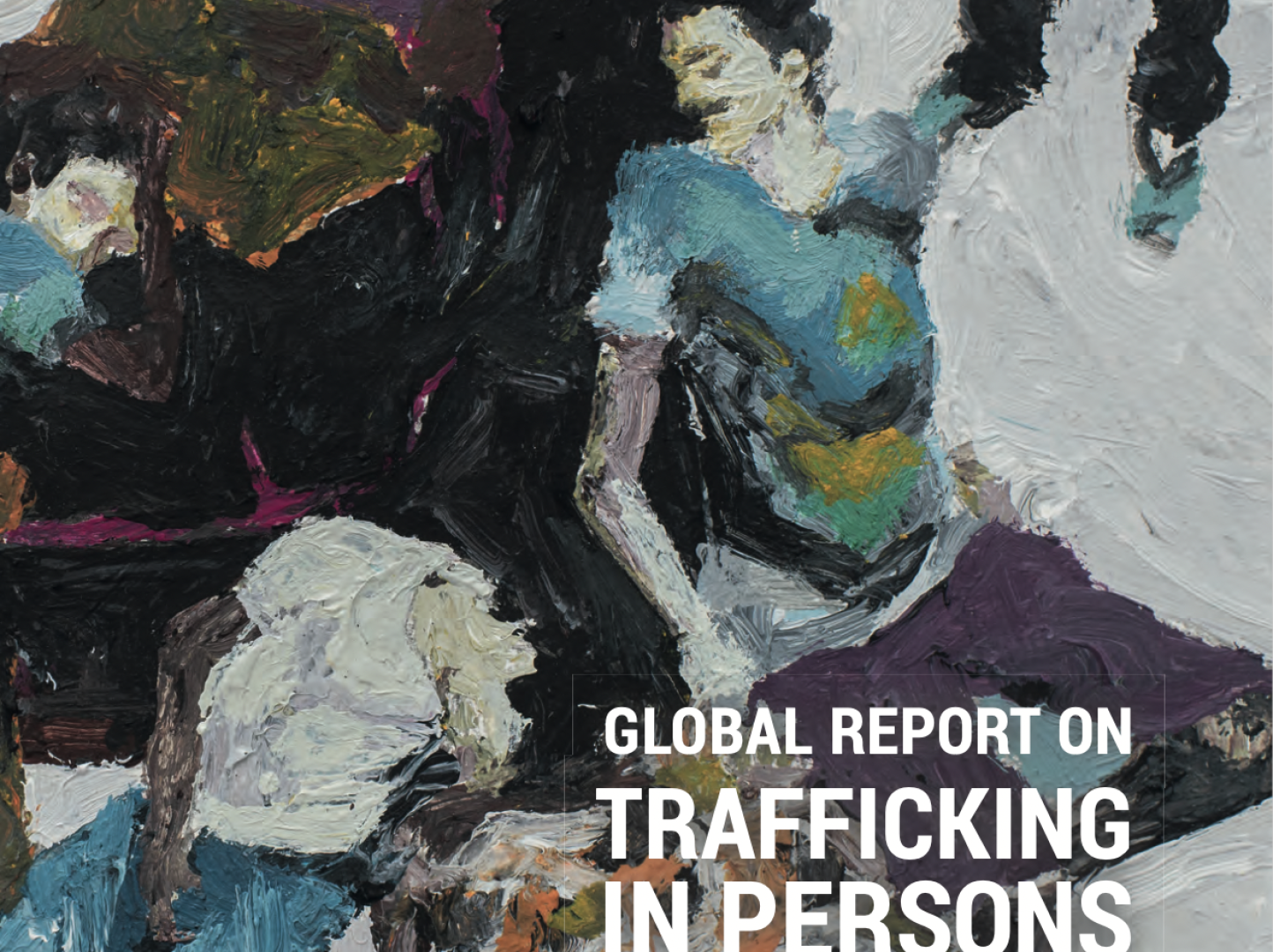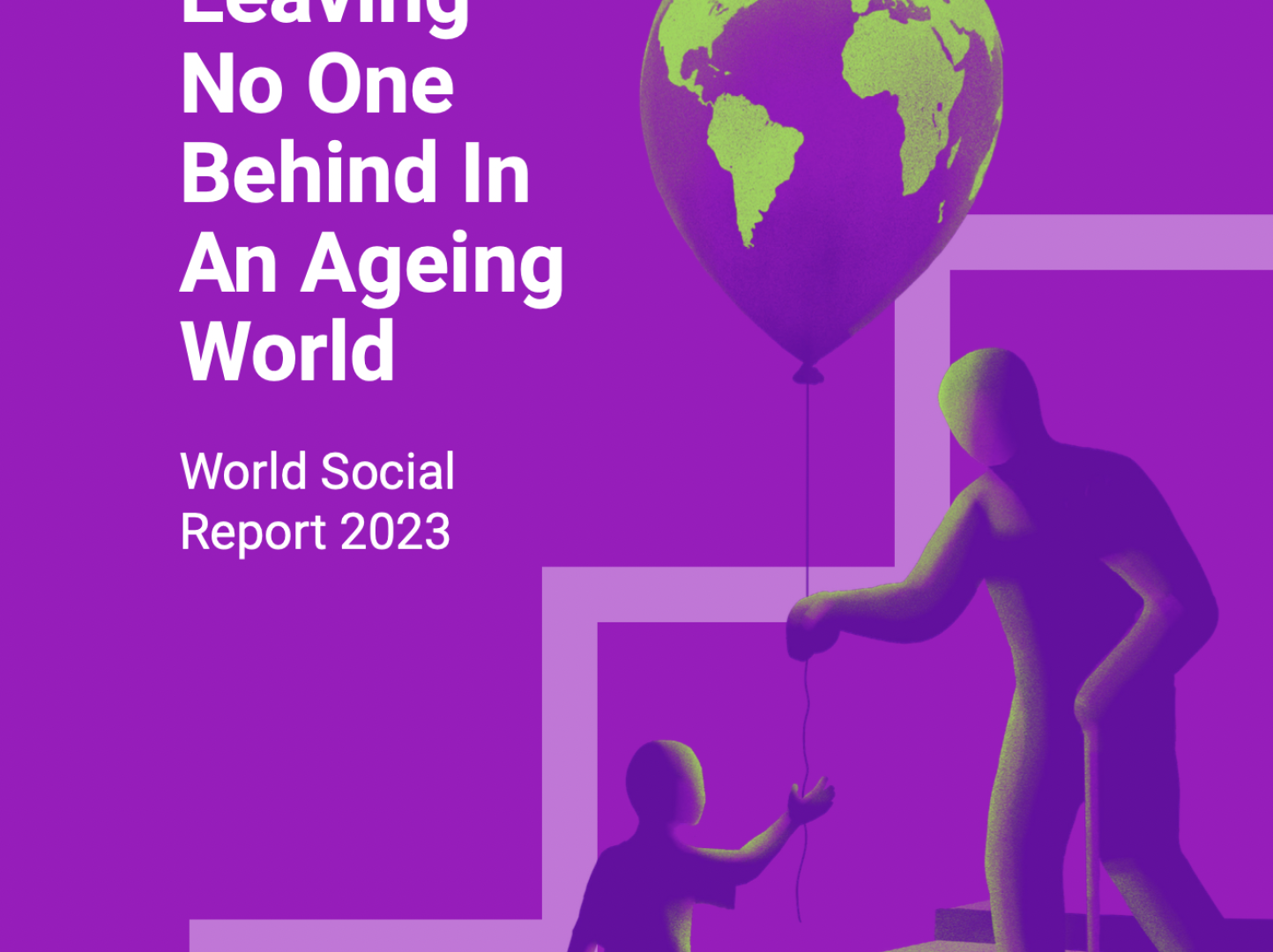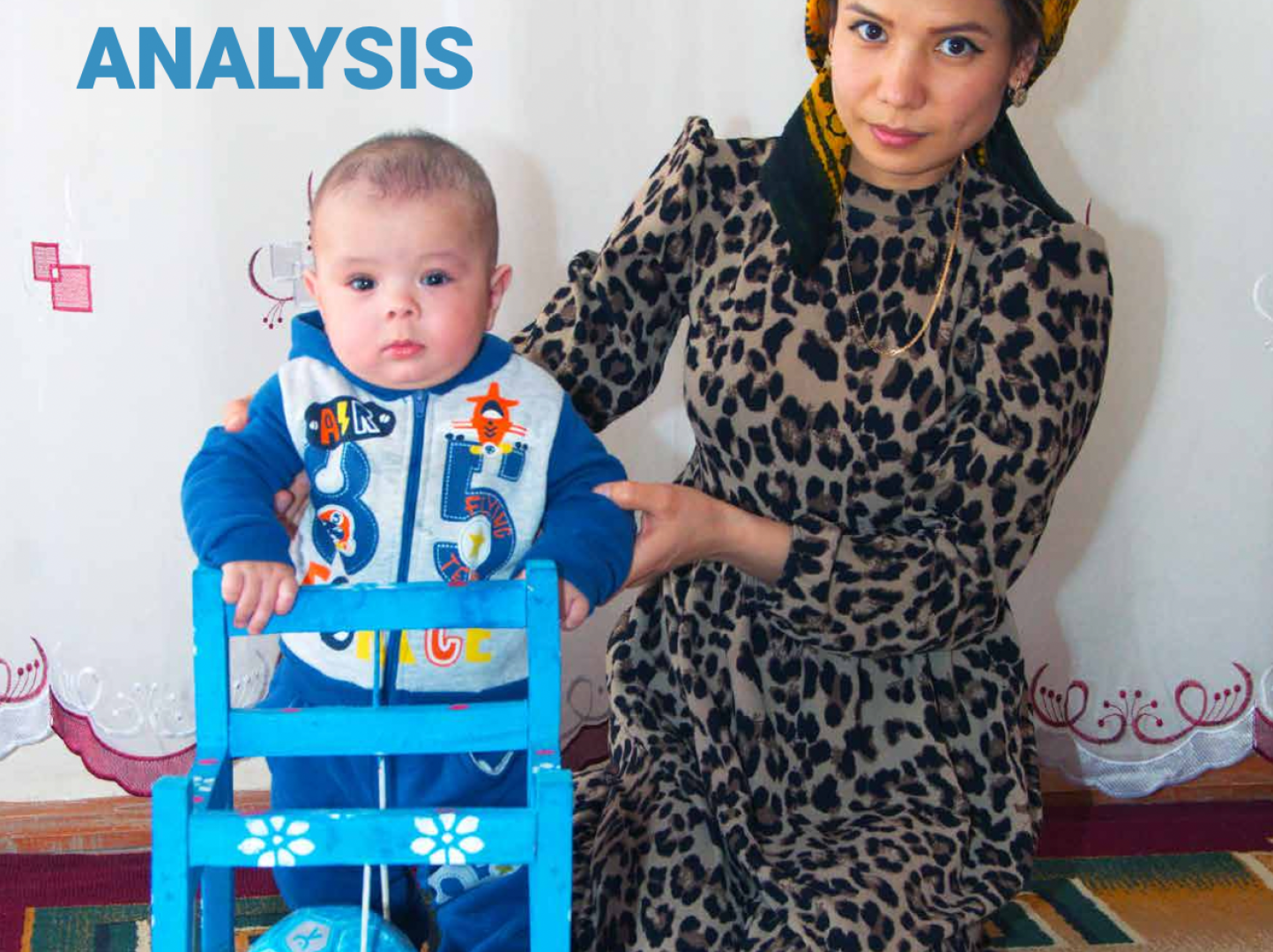Latest
Story
23 October 2025
Turkmenistan Marks the 80th Anniversary of the United Nations with the Signing of the UN–Turkmenistan Sustainable Development Cooperation Framework for 2026–2030 and a High-Level Conference in Ashgabat
Learn more
Speech
23 October 2025
Remarks by Dmitry Shlapachenko, United Nations Resident Coordinator in Turkmenistan Conference dedicated to the 80th Anniversary of the United Nations
Learn more
Press Release
22 October 2025
FAO Strengthens Turkmenistan’s Capacity on Sustainable Development Data
Learn more
Latest
The Sustainable Development Goals in Turkmenistan
The Sustainable Development Goals are a global call to action to end poverty, protect the earth’s environment and climate, and ensure that people everywhere can enjoy peace and prosperity. These are the goals the UN is working on in Turkmenistan:
Press Release
14 October 2025
Turkmenistan’s Youth Lead the Way on Climate Action
Supported by the Government of Turkmenistan, UN agencies, including RCO, UNDP, UNICEF, UNRCCA, the British Embassy, OSCE and GIZ, the event served as a dynamic platform for exchanging ideas, discussing climate challenges, and adopting a unified Youth Climate Roadmap. This roadmap will be presented at the upcoming Conference of Youth (COY20) and the 30th Conference of the Parties (COP30) in Belém, Brazil. Opening the conference, representatives of the Government and the United Nations commended the dedication of Turkmenistan’s youth to climate action and their contributions to national priorities. They emphasized that young people are essential partners in achieving the country’s commitments under the Paris Agreement and the Sustainable Development Goals. “The youth of Turkmenistan demonstrate inspiring leadership, knowledge, and solidarity in the face of climate challenges. Their ideas and actions not only reflect national priorities—they contribute meaningfully to the global dialogue. The United Nations highly values the active role of young leaders in shaping a sustainable and inclusive future,” said Dmitry Shlapachenko, UN Resident Coordinator in Turkmenistan. Participants were divided into six thematic working groups focused onClimate change mitigationAdaptationClimate financeEnvironmental educationBiodiversity conservation and environmental protectionIntegrated water resource managementTechnical experts and group coordinators guided discussions, while youth delegates shared community experiences, presented climate-focused initiatives, and deepened their understanding of environmental policy. The sessions inspired participants to raise awareness, launch local projects, and engage with decision-makers. Many emphasized the importance of integrating traditional knowledge, innovation, and technology into climate solutions. The sessions inspired participants to take proactive steps in raising awareness, initiating local projects, and engaging with authorities on climate issues. Many also emphasized the importance of integrating traditional knowledge, innovation, and technology to address environmental challenges. Each group developed concrete proposals for inclusion in national policy and the Youth Declaration. “It is important for us that youth ideas and initiatives are reflected in national climate policy. We are ready to cooperate with government institutions and international partners to move together toward a sustainable future,” — said Gulshat Ayydova, eco-activist and facilitator of the National Youth Climate Conference. After the working sessions, group leaders presented their recommendations, which were included in the preliminary version of the Youth Climate Action Roadmap. These proposals will form part of the final Youth Statement of Turkmenistan, to be presented at COY20 and later at COP30. The Conference of Youth (COY) is an annual international event that brings together young leaders and activists to discuss climate solutions. In 2025, COY20 will take place in early November in Belém, Brazil, serving as a preparatory platform for youth participation in COP30 — the 30th Conference of the Parties to the UN Framework Convention on Climate Change (UNFCCC), to be held from 10 to 21 November 2025. The UNFCCC serves as the global framework for addressing climate change, and the COP is its supreme decision-making body.
1 of 5
Press Release
03 October 2025
Youth Roundtable in Turkmenistan: #YouthLead(ership) – Accelerating Progress on the SDGs through Intergenerational Dialogue
The roundtable featured high-level participation, including:Mr. Dmitry Shlapachenko, UN Resident Coordinator in TurkmenistanMs. Myahri Byashimova, Deputy Minister of Foreign AffairsMs. Narine Sahakyan, UNDP Resident RepresentativeMs. Chynar Rustamova, Executive Secretary of the National Commission of Turkmenistan for UNESCOMr. Kemal Goshliyev, Head of UNFPA in TurkmenistanMr. Azat Atayev, Deputy Minister of Education “Supporting youth initiatives is not only about resources — it’s about trust, recognition, and shared responsibility. Events like the #YouthLead(ership) roundtable create space for intergenerational exchange, where young people can voice their ideas and shape the future alongside national and UN partners.”
— Dmitry Shlapachenko, UN Resident Coordinator in Turkmenistan Participants reflected on the outcomes of last year’s youth dialogues and shared priorities for accelerating SDG progress. The roundtable facilitated meaningful exchange between youth and decision-makers, resulting in concrete commitments to integrate youth recommendations into UN strategies and national development plans. Young SDG Ambassadors presented achievements from the past 18 months, including their contributions to national and international platforms, training initiatives, and policy dialogues. Their presentations served as both a progress report and a call to action for broader youth engagement. The event’s centerpiece — an intergenerational panel discussion — enabled young participants to pose questions directly to senior officials on topics ranging from inclusive education and youth participation in decision-making to digital innovation and sustainable development financing. The dialogue underscored the importance of listening, partnership, and shared responsibility across generations.This roundtable was convened in honor of two global milestones: the 80th anniversary of the United Nations and the 30th anniversary of the World Programme of Action for Youth (WPAY). The global #YouthLead Festival, coordinated by the UN Office of the Secretary-General’s Envoy on Youth and brought together governments, youth organizations, civil society, and the UN system to mobilize bold intergenerational solutions for the 2030 Agenda and the Pact for the Future.
— Dmitry Shlapachenko, UN Resident Coordinator in Turkmenistan Participants reflected on the outcomes of last year’s youth dialogues and shared priorities for accelerating SDG progress. The roundtable facilitated meaningful exchange between youth and decision-makers, resulting in concrete commitments to integrate youth recommendations into UN strategies and national development plans. Young SDG Ambassadors presented achievements from the past 18 months, including their contributions to national and international platforms, training initiatives, and policy dialogues. Their presentations served as both a progress report and a call to action for broader youth engagement. The event’s centerpiece — an intergenerational panel discussion — enabled young participants to pose questions directly to senior officials on topics ranging from inclusive education and youth participation in decision-making to digital innovation and sustainable development financing. The dialogue underscored the importance of listening, partnership, and shared responsibility across generations.This roundtable was convened in honor of two global milestones: the 80th anniversary of the United Nations and the 30th anniversary of the World Programme of Action for Youth (WPAY). The global #YouthLead Festival, coordinated by the UN Office of the Secretary-General’s Envoy on Youth and brought together governments, youth organizations, civil society, and the UN system to mobilize bold intergenerational solutions for the 2030 Agenda and the Pact for the Future.
1 of 5
Press Release
19 September 2025
United Nations Reinforces Commitment to Sustainable Development at Turkmenistan Investment Forum 2025
UN Resident Coordinator Mr. Dmitry Shlapachenko moderated the high-level plenary session titled “Investment Attractiveness of Turkmenistan as a Factor of Strategic Efficiency,” facilitating dialogue among key stakeholders. In his formal statement delivered during the Forum, Mr. Shlapachenko emphasized Turkmenistan’s potential as a resilient and forward-looking investment destination. He highlighted the importance of WTO accession, trade facilitation, and regional integration through the UN Special Programme for the Economies of Central Asia (SPECA), noting: “Multilateral rules at the core, with sub-regional execution, is how we turn geography into opportunity.” UN RCO Economist Mr. Uladzimir Valetka contributed expert insights the thematic session focused on sustainable transport. In the discussion, Mr. Valetka underscored the economic and social dividends of investing transport infrastructure and benefits of increased utilization of the cargo transit potential, including for jobs creation, trade competitiveness, and regional value chain development. In the exchange with the World Bank, Mr. Valetka referred to the SPECA as a valuable coordinating mechanism to advance digitalization of the transport corridors in the region. The Forum also featured virtual remarks from Ms. Rabab Fatima, UN Under-Secretary-General and High Representative for Landlocked Developing Countries (LLDCs), who reiterated the UN’s support for the Awaza Programme of Action and its implementation across LLDCs. The UN Country Team expressed its continued commitment to supporting Turkmenistan’s reform agenda through evidence-based policy advice, technical cooperation, and regional dialogue platforms. Upcoming engagements include the Ashgabat SPECA Economic Forum in November and the UN Sustainable Energy for All Forum in 2026.
1 of 5
Press Release
15 September 2025
TIF Side Event Highlights National SDG Financing Priorities
The meeting opened with welcoming remarks from national counterparts and the United Nations. Participants reviewed the outcomes of the 4th International Conference on Financing for Development and discussed their relevance for country-level implementation. Experts explored Turkmenistan’s policy approaches to financing the SDGs, discussed the results of the joint UN–Government assessment of SDG financing gaps, and examined best practices of developing financing strategies for SDGs from across the world.The presentation on SDG financing in Turkmenistan highlighted the country’s commitments to the 2030 Agenda and outlined the following key points:Mechanisms in place: a national coordination frameworkand the Joint Expert Group on SDG Financing.Financing sources: state budget, private sector, external borrowing, and partnership platforms with civil society and business actors.Achievements since 2020: completion of the Development Finance Assessment, joint UN–Government assessment of SDG financing gaps as part of the Common Country Analysis, inclusion of SDG financing in the Voluntary National Review.Next steps: shaping the development of a national SDG Financing Strategy, updating SDG financing gaps analysis, and strengthening dialogues (including via Hard Talks) and coordination among stakeholders. The discussions also touched on broader global perspectives on sustainable development financing, with UNDP Istanbul Regional Hub experts noting the importance of innovative financial tools and the strategic use of national resources to strengthen government revenues and support investments in health, education, and social priorities. Dmitry Shlapachenko, UN Resident Coordinator in Turkmenistan, emphasized the importance of the dialogue: “Today’s gathering is a testament to our shared commitment to advancing the Sustainable Development Goals in Turkmenistan. The agenda before us reflects the spirit of partnership and innovation that is essential for mobilizing the resources and expertise needed to achieve the SDGs by 2030, including through UN joint programmes.”“Turkmenistan has demonstrated strong national commitment to the SDGs, with 136 targets and 180 indicators adopted for implementation until 2030. Notably, 85% of SDG targets have been incorporated into national strategies, programs, and action plans, as confirmed by the country’s second Voluntary National Review” he said.The discussions reaffirmed the importance of aligning financial flows with sustainable development priorities and demonstrated the value of strong partnerships between the Government of Turkmenistan, the United Nations, and development actors. The outcomes of the session will inform the next steps in developing comprehensive financing strategies to accelerate progress towards the SDGs at the national level contributing to the Pact for the Future and Awaza Programme of Action implementation.
1 of 5
Press Release
08 September 2025
UNDP and UNECE Support the Development of Renewable Energy in Turkmenistan
The event was organized within the framework of the joint programme “Support to Policy Making and Building National Capacity towards Green Energy Transition in Turkmenistan,” implemented by UNDP and UNECE under the coordination of the UN Resident Coordinator’s Office in Turkmenistan.The seminar brought together representatives from relevant ministries and agencies, academia, and organizations involved in implementing national energy policy, conducting research, and training personnel for the energy sector.Participants learned about global renewable energy (RE) trends, with renewables supplying over 30% of global electricity generation in 2024 (International Energy Agency) and hydrogen emerging as enabler for future energy development. The event focused on key technological aspects of energy sector modernization, and international experience in regulating and promoting the use of RE and hydrogen. Experts underlined that Turkmenistan has one of highest solar irradiation levels in Central Asia -averaging to 2500-3000 hours of sunshine annually – offering strong prospects for scaling up solar energy projects. Special attention was given to the best available technologies, tools, and models that can be used for a more precise assessment of Turkmenistan’s RE potential. Opportunities for financing RE projects, including green bonds, climate funds, and public-private partnerships, were also analyzed.Training included practical tools and models for assessing prospects for using RE and hydrogen in Turkmenistan, development of RE projects, integration of energy storage systems aligned with international best practices supporting the energy transition and approaches to planning and implementing projects in the energy sector.In addition, the event featured also a segment dedicated to methane emissions during which participants discussed the current relevant domestic regulations and explored opportunities for improvement of the Turkmenistan’s general legal framework addressing that matter in order to limit the carbon footprint of the local oil and gas industry.At the conclusion of the seminar, all participants received certificates and training materials, which can be used by a wide range of stakeholders in implementing national energy policy and for educational purposes. The joint programme titled “Support to Policy Making and Building National Capacity towards Green Energy Transition in Turkmenistan”, funded by the Joint SDG Fund, aims to enhance Turkmenistan's capacity for a green energy transition by assessing current resources and technological needs, developing strategies for renewable energy, and ensuring social protection and skills development for the workforce affected by this transition.The program focuses on enhancing Turkmenistan's green energy transition by building national capacity and supporting policymaking. It actively engages stakeholders to assess energy sector needs, develop strategies for renewable energy, and promote energy efficiency, aiming to achieve significant SDG targets. By integrating climate measures into national policies, the program contributes to sustainable development and climate resilience, ultimately advancing the country's commitment to a carbon-neutral future.
1 of 5
Story
23 October 2025
Turkmenistan Marks the 80th Anniversary of the United Nations with the Signing of the UN–Turkmenistan Sustainable Development Cooperation Framework for 2026–2030 and a High-Level Conference in Ashgabat
The conference featured the congratulatory message from H.E. President Serdar Berdimuhamedov addressed to the participants and the statement by H.E. Rashid Meredov, Deputy Chairman of the Cabinet of Ministers and Minister of Foreign Affairs of Turkmenistan, who highlighted the country’s strategic partnership with the United Nations and reaffirmed Turkmenistan’s commitment to multilateral cooperation and the Sustainable Development Goals (SDGs). Mr. Dmitry Shlapachenko, United Nations Resident Coordinator in Turkmenistan, emphasized that the 80th anniversary is both a moment for reflection and renewal. He underscored the UN’s continued role as “a living promise – spanning borders, bridging continents, and inspiring generations.” “The United Nations has been present in Turkmenistan for over 30 years, supporting national development priorities and advancing the SDGs. The new Cooperation Framework reaffirms our joint commitment to ensuring that every person, including the most marginalized, enjoys peace, dignity, and the right to development,” — Dmitry Shlapachenko, UN Resident Coordinator in Turkmenistan. The other speakers in conference included senior representatives of the Government and the United Nations Country Team, including the Minister of Education Jumamyrat Gurbangeldiyev, Minister of Healthcare and Medical Industry Myrat Mammedov, Minister of Finance and Economy Mammetguly Astanagulov, and heads of UN agencies — Narine Sahakyan of UNDP, Egor Zaitsev of WHO, and Maaike Bijker, UNICEF Acting Representative. The commemoration of the UN’s 80th anniversary coincided with a new chapter in the UN–Turkmenistan partnership, as both sides signed the UN–Turkmenistan Sustainable Development Cooperation Framework for 2026–2030, charting a shared vision for inclusive and sustainable national development and reflecting the shared spirit of partnership and the collective commitment to advancing peace, prosperity, and sustainable development for all. As part of the UN80 celebrations in Turkmenistan, a series of public events are being jointly organized by the UN Country Team and the Government of Turkmenistan, including:A photo exhibition “80 Years of the United Nations” in Ashgabat;A symphonic concert “UN80: Music of Peace and Hope”, performed by the State Symphony Orchestra and the Children’s Choir of Turkmenistan; andA series of UN80 marathons across the Ahal, Balkan, Dashoguz, Lebap, and Mary regions, promoting peace, unity, and a healthy lifestyle.
1 of 5
Story
30 September 2025
Breath of hope: How oxygen is saving Turkmenistan’s babies
“It’s an incredible feeling to watch a tiny baby take their first breaths without a machine,” says Guljemal Jemmiyeva, anesthesiologist and resuscitator at the neonatal intensive care unit of Mother and Child Health Centre in Dashoguz, Turkmenistan. Until recently, oxygen for the hospital had to be delivered from outside. Staff had to be diverted to arrange transport and to move heavy cylinders – a process that could cause delays in oxygen supply, meaning the difference between life and death for patients. In 2024, this changed: a new oxygen station was installed with the support of UNICEF and the Ministry of Health. “For the first time, oxygen flows reliably and continuously into our wards. Newborns and babies under one year now receive oxygen the moment they need it, regardless of the hour or their diagnosis,” says Guljemal.The impact was biggest for premature babies with respiratory distress syndrome (RDS), she says. Now, thanks to uninterrupted oxygen, staff can use non-invasive SIPAP therapy instead of invasive mechanical ventilation. “It’s less risky for the baby. We see them recover faster, moving to breathing on their own much sooner,” she says. More than 1,500 children each year, including those with disabilities, spinal injuries, chronic lung conditions and severe respiratory illnesses, now have reliable access to oxygen. One little boy with a severe spinal injury has been under the care of Ashgabat’s Mother and Child Health Centre for three years. “He has required over 32,000 litres of oxygen. Before this station, keeping up with his needs would have been almost impossible,” says Dr. Jeren Orazova, a physician in the Centre’s pediatric intensive care unit. “Now we can plan his care and know that his oxygen supply will not fail.” UNICEF also supplied the centers with laryngoscope kits and infant nasal cannulas, and provided specialized training for health workers. The trainings taught staff how to safely provide oxygen, adjust flow rates for tiny lungs, monitor patients using pulse oximetry, and properly maintain oxygen equipment. This education has been transformative, both physicians say. “Oxygen is life,” says Guljemal. “Now, when a baby is struggling to breathe, I know we have what we need. Our children can breathe easier, and so can we.”
1 of 5
Story
23 September 2025
Every Child Belongs: UNICEF and national partners expand inclusive education in schools and kindergartens
UNICEF, together with the Ministry of Education of Turkmenistan and social protection partners, are taking the next step to bring inclusive education to pilot schools and kindergartens across the country. The initiative is designed to ensure that every child – including children with disabilities and developmental challenges – can learn, play and thrive in supportive environments.During 14–20 September, international and national experts worked side by side with teachers, specialists and school leaders to strengthen systems for inclusion. Ms. Marina Emets, a specialist from the Saint Petersburg Institute of Early Intervention, is working closely with the Ashgabat Rehabilitation Centre, supporting pilot kindergartens working with children with autism and other developmental needs. Through supervision, training and joint planning, the rehabilitation center is becoming a key resource for early identification, referral and support for children with disabilities and their families. UNICEF expert Filomena Pereira from Portugal also worked with teachers and school administrators on practical strategies. These included involving parents, using inclusive and culturally sensitive language, introducing interactive and play-based learning, and monitoring the progress of every child. By the end of the week, school teams had developed draft plans to strengthen inclusive practices in their classrooms. As part of the programme, pilot kindergartens (no’s 14 and 160) and schools (no’s 29 and 74) are receiving direct support to make classrooms more accessible. Adjustable desks and chairs, tailored to children’s physical needs, help students maintain better posture and learning, and help teachers provide higher quality learning experience. This support addition has been particularlyimportant as the new 1st grade students with additional needs were enrolled in the pilot facilities. “This next phase is about turning principles into practice” said UNICEF Turkmenistan Representative Jalpa Ratna. “We are helping schools and kindergartens test and refine inclusive approaches, build confidence among teachers and families, and create more classrooms where every child feels welcome and supported.” UNICEF’s inclusive education programme is part of the upcoming 2026–2030 Country Programme, which prioritizes early years development, disability inclusion and quality education for all. The initiative also aligns with Turkmenistan’s National Action Plan on Implementation of the Rights of the Child, ensuring that no child is left behind.
1 of 5
Story
16 September 2025
Sunnyside Sparks: How Turkmenistan’s Youth Are Turning Up the Heat on Urban Resilience
Maya Ashirova, Climate Change, Disaster Risk Reduction, and Emergency Preparedness SpecialistIn late July 2025, while much of Turkmenistan was braving another sweltering summer, 30 young people from across the country gathered in a cool room buzzing with energy — not from air conditioners, but from curiosity and commitment. They were participants of the Youth Summer School on Climate Change, organized by UNICEF, and they had one mission: to understand and act on the rising threat of climate change. What none of them expected was that a fictional city would spark real-world urgency.They were introduced to the case of “Sunnyside”, once a green haven known for its mild summers and tree-lined streets. But now, Sunnyside was in crisis. The city had endured four consecutive weeks of heatwave, with daily highs above 43°C (109°F) — the longest ever recorded. Residents, especially the most vulnerable — children, elderly people, and outdoor workers — were struggling to cope. Electricity blackouts, rising air pollution, and a water supply nearing its limits turned the heatwave from a seasonal inconvenience into a public health emergency. As the young participants stepped into the shoes of Sunnyside's crisis planners, something clicked. "This could be Dashoguz," said Dovlet, a 17-year-old from northern Turkmenistan, where the legacy of the Aral Sea disaster has left his community water-stressed and exposed to environmental extremes. “It’s hot during the day and even at night, with no break to recover. There’s nowhere to cool down — people, animals, and even plants are under stress,” said Dovlet. It was during the summer school that he learned there’s a name for this phenomenon — tropical nights — when nighttime temperatures stay so high that the body can’t cool down properly, increasing health risks, especially for the most vulnerable.Over the course of the workshop, students mapped vulnerabilities, debated priorities, and proposed solutions. The ideas poured out: emergency call centers, SMS-based alert systems, hydration points near bus stops, radio campaigns, school awareness programs, and even youth-led outreach through social media. What strengthened their motivation further was learning that heatwaves are officially recognized as a public health concern in Turkmenistan. The government has already taken steps by adopting the Plan of Actions to Prevent the Health Effects of Heat of Population in Turkmenistan, which outlines preventive and response measures. This national plan set a critical backdrop for the youth’s efforts — reinforcing the urgency of community-level engagement and the role of informed citizens, including youth.But perhaps the most powerful shift came when they realized they could start acting immediately with knowledge and their voices. The young participants decided to spread reliable heatwave preparedness tips to their peers. Backed by the UNICEF Health Team, they drafted a campaign focused on the basics of heatwave survival: Be prepared: Know how hot it will be and plan activities accordingly. Keep a simple emergency kit with ORS packets, fans, water bottles, and a checklist for heat stress symptoms. Keep your home cool: Draw curtains during the day, ventilate at night, and use fans or ACs if possible. Stay out of the heat: Avoid being outdoors during peak heat hours. When outside, wear sunscreen, light cotton clothes, and stay in the shade. Stay cool and hydrated: Drink water before you’re thirsty, carry a wet towel to cool down, and check for nearby cooling shelters or clinics. “We can’t ignore this anymore, it’s not just about climate change somewhere far away — it’s about how we survive summer here, in our own cities.” mentioned Dovlet.The youth summer school may have started with imaginary exercises, but it ended with a real plan: to launch a youth-led awareness campaign and bring knowledge to their communities through digital means. They are determined to ensure that children and youth are not just seen as vulnerable groups — but as drivers of resilience.
1 of 5

Story
11 August 2025
Third United Nations Conference on Landlocked Developing Countries (LLDC3) Concludes in Awaza with Landmark Commitments for the Next Decade
Awaza, Turkmenistan – 8 August 2025 – The Third United Nations Conference on Landlocked Developing Countries (LLDC3) concluded today in Awaza, Turkmenistan, with the endorsement of the Awaza Programme of Action for LLDCs 2024–2034—a comprehensive 10-year roadmap to address the unique challenges of landlocked developing countries and accelerate their progress towards the Sustainable Development Goals (SDGs). The four-day Conference brought together more than 5,700 participants from 103 countries, including representatives from 30 of the 32 LLDCs, 16 Heads of State and Government, 3 Vice Presidents, 108 ministers, over 100 parliamentarians, members from 29 international organizations, and more than 450 civil society organizations—making it the most comprehensive and inclusive gathering ever held for LLDCs. Opening the Conference, United Nations Secretary-General António Guterres stressed that “geography should never define destiny,” urging the global community to remove structural barriers and mobilize greater investments in infrastructure, trade facilitation, and connectivity. President Serdar Berdimuhamedov of Turkmenistan emphasized that LLDC3 sends a clear message: physical geography must not limit a nation’s potential. He reaffirmed Turkmenistan’s commitment to inclusive multilateralism and presented several initiatives, including the Medicine of the Future initiative, the Caspian Environmental Initiative, the Digital Atlas for Sustainable Transport Connectivity, and a Global Framework Programme on Circular Economy. Voices from Across SectorsFrom the Youth Forum on day one to multi-stakeholder platforms with women leaders, parliamentarians, civil society, the private sector, and South–South cooperation partners, LLDC3 ensured that diverse perspectives informed its outcomes. These forums produced actionable proposals to strengthen policy coherence, advance gender equality, invest in green infrastructure, and promote community-driven development. Thematic PrioritiesDiscussions centred on the five strategic priorities of the Awaza Programme of Action:Structural transformation, diversification, and science, technology and innovation (STI)Trade, trade facilitation, and regional integrationTransport and transit systemsClimate resilience and environmental sustainabilityAccess to finance, technology, and capacity buildingA UN-co-hosted side event on the circular economy showcased how resource-efficient practices can create new economic opportunities and advance climate goals in LLDCs. Flagship InitiativesThe Awaza Programme of Action introduces five flagship initiatives designed to address structural impediments and catalyse progress across the SDGs:Regional Agricultural Research Hubs: To boost food security, diversify exports, and promote climate-smart agriculture, enhancing resilience and nutrition.Dedicated Work Programme on LLDCs under the WTO: To address trade vulnerabilities, improve market access, and integrate LLDCs into global supply chains.Secretary-General’s High-Level Panel on Freedom of Transit: To remove transit barriers, improve infrastructure, and ensure LLDCs’ effective participation in global trade.Infrastructure Investment Finance Facility (IIFF): To mobilize resources for sustainable infrastructure, connect investors to opportunities, and strengthen local capacity to develop bankable projects.Digital Connectivity Initiatives: To bridge the digital divide and enable LLDCs to harness the power of digital infrastructure for trade, services, and innovation. The Role of Resident CoordinatorsResident Coordinators (RCs) will play a central role in translating the Awaza Programme of Action into tangible results at the country level. Working in close partnership with National Focal Points, RCs can help integrate LLDC priorities into national development plans and UN Sustainable Development Cooperation Frameworks, ensure alignment with sectoral strategies, and identify practical entry points.They can also work with governments and partners to mobilize financing for LLDC priorities, promote peer learning and regional cooperation, and ensure that SDG monitoring systems capture progress on Awaza commitments. The OHRLLS Toolkit will be an important resource, offering practical guidance on integrating the Programme of Action into national planning and follow-up processes. “LLDC3 has shown us that the vision and political will are in place. Now it’s about implementation—and for that, the RC–NFP partnership is absolutely central,” said Dmitry Shlapachenko, UN Resident Coordinator in Turkmenistan. “With the right tools, partnerships, and sustained focus, we can turn commitments into concrete progress for landlocked developing countries.” A Decade of ActionSpeaking at the closing press conference, Rabab Fatima, Under-Secretary-General and High Representative for the Least Developed Countries, Landlocked Developing Countries and Small Island Developing States, and Secretary-General of LLDC3, remarked: “Awaza, a city associated with wellness and tourism, now symbolizes ‘new hope and new opportunities’ for landlocked developing countries.”For UN Turkmenistan, LLDC3 was a defining moment to reaffirm support for the country’s role as a bridge for dialogue, cooperation, and partnership. The outcomes will guide a decade of action to transform LLDCs from landlocked to land-linked, ensuring that no country is left behind because of its geography.
1 of 5

Press Release
22 October 2025
FAO Strengthens Turkmenistan’s Capacity on Sustainable Development Data
The seminar aimed to strengthen national capacities in data collection and reporting on SDG indicators under FAO’s responsibility. FAO experts Ms. Rasmiyya Aliyeva and Ms. Veronica Boero presented updated methodologies, tools, and international best practices for data collection, analysis, and reporting related to several key SDG indicators. The discussions highlighted methodological updates and provided recommendations for improving national data collection and ensuring consistency with global standards. FAO experts shared recommendations aimed at enhancing data quality and improving coordination among national stakeholders. The seminar concluded with a discussion on the opportunities for the FAO Regional Office and the UN Resident Coordinator’s Office to continue supporting Turkmenistan in advancing SDG reporting. Participants emphasized the importance of joint efforts and inter-agency collaboration to strengthen the national statistical system and ensure reliable, policy-relevant data that will contribute to Turkmenistan’s sustainable development and progress toward achieving the 2030 Agenda.
1 of 5
Press Release
21 October 2025
Turkmenistan launches development of the National Action Plan on Human Rights for 2026-2030
“The recent recommendations received from the Universal Periodic Reviews (UPR) and from several UN Treaty Bodies provide a comprehensive roadmap for strengthening human rights protections in various sectors, for instance legislative frameworks, institutional capacity, access to justice, non-discrimination, or the protection of vulnerable groups” – said Fabio Piana, UN Human Rights Deputy Regional Representative for Central Asia. Participants reviewed the UPR Matrix of the 4th cycle, including recommendations from UN Treaty Bodies, and discussed the logic, structure and priority areas of the Plan, drawing on international best practices. Based on the results of the fourth cycle of the UPR, which took place in November 2023, Turkmenistan accepted 146 of 228 recommendations. More information is available here: https://docs.un.org/A/HRC/55/4
1 of 5
Press Release
17 October 2025
Turkmenistan and the United Nations Reaffirm Strategic Partnership at Fourth Strategic Advisory Board Meeting
Mr. Rashid Meredov, Deputy Chairman of the Cabinet of Ministers and Minister of Foreign Affairs of Turkmenistan, and Mr. Dmitry Shlapachenko, UN Resident Coordinator in Turkmenistan opened the meeting. In his remarks, Mr. Shlapachenko emphasized the unique role of the Strategic Advisory Board as a platform for dialogue and consensus-building on key national and global priorities. He highlighted recent achievements, including the development of joint programmes and the new developments for establishing the Regional UN Centre for Climate Technologies in Central Asia, as well as Turkmenistan’s active engagement in the Third UN Conference on Landlocked Developing Countries (LLDC3). Having presented the new UN-Turkmenistan Cooperation Framework for 2026–2030 as a strategic document which outlines shared priorities and commitments to accelerate progress on the Sustainable Development Goals (SDGs) through coordinated action and inclusive partnerships, he asked the Strategic Advisory Board to endorse the document for signing.The Board also reviewed the implementation of initiatives announced by Turkmenistan at the 80th session of the UN General Assembly, reaffirming the country’s commitment to global peace, sustainable development, and international cooperation. Besides, discussions focused on enhancing data quality and reporting for SDG indicators, with reference to the Roadmap on Strengthening SDG Reporting adopted in December 2024. The UN Country Team handed over a brochure summarizing progress made in 2025, including data collection for eight SDG indicators. The brochure also highlighted remaining over 30 indicators which require further actions by the national entities for data generation and reporting. Participants exchanged views on the outcomes of LLDC3 and reviewed the progress achieved in the development of joint programmes in areas such as digital governance, youth empowerment, green energy transition, education, and climate action. Presentations were made by representatives of UNDP, UNFPA, UNOPS, and other UN agencies, alongside national ministries and institutions.The meeting concluded the endorsement of the UN-Turkmenistan Cooperation Framework 2026–2030, which is scheduled for official signing on 23 October 2025. The decisions also included conducting in the end of October of the round table for the ministries of Turkmenistan on the progress in the implementation of the Roadmap for SDG indicators; preparation of the Programme of Actions for the realization of the Turkmenistan initiatives proposed at 80th session of the UN General Assembly; development of the Roadmap for implementation of the Awaza Political Declaration and Programme of Action of the 3rd LLDC Conference; and establishment of an joint Inter-Agency Coordination Group on the joint programs proposed by the UN, with a first meeting to be held in November 2025. The Strategic Advisory Board continues to serve as a vital mechanism for aligning national development priorities with global UN frameworks, including the Pact for the Future and the Awaza Programme of Action 2024–2034, reinforcing Turkmenistan’s leadership in regional connectivity and sustainable development.
1 of 5
Press Release
14 October 2025
Strengthening integrated epidemiological surveillance of influenza and acute respiratory infections in Turkmenistan
The mission featured the visit of Dr. Fielding James Edward, Technical Officer for Respiratory Virus Surveillance at WHO/Europe, alongside Kirill Stolyarov and Daria Danilenko, WHO/Europe experts.During the visit, the experts provided advisory and technical support to national stakeholders on the implementation of integrated sentinel epidemiological surveillance of influenza and ARI. They monitored and evaluated the updated protocol of the sentinel surveillance of influenza and ARI across expanded sentinel centers, focusing on both epidemiological and virological components, as well as data collection and analysis systems.The team also reviewed the implementation of the electronic program for epidemiological surveillance of influenza and ARI, proposing amendments to align with updated national guidelines for routine and sentinel surveillance. A seminar was conducted to build national capacity on the principles of sentinel surveillance for influenza, mosaic surveillance strategies, data management for epidemiological surveillance, and virological surveillance. The experts also participated in a panel session during the scientific conference titled Healthcare, Education, and Sports in the Era of the Revival of a New Era of a Powerful State, held in honor of Medical Worker's Day in Turkmenistan.Site visits were conducted to key public health institutions in Ashgabat, including Health Home No. 10, the Direсtorate of Centers for Prevention of Infectious Diseases, the Sanitary and Epidemiological Service of the Ashgabat city, the State Sanitary and Epidemiological Service under the Ministry of Health and Medical Industry of Turkmenistan, and the Virological Reference Laboratory at the Public Health and Nutrition Center. These visits provided an opportunity to review laboratory surveillance practices for influenza and ARI and assess the operational capacity of sentinel surveillance systems.The mission concluded with a strategic discussion of key findings, technical recommendations, and proposed next steps to further strengthen Turkmenistan’s integrated surveillance system for influenza and ARI. WHO/Europe reaffirmed its commitment to ongoing collaboration in support of the country’s public health preparedness and response efforts.
1 of 5
Press Release
01 October 2025
WHO hosts strategic roundtable on “Immune Patrol” rollout in Turkmenistan
The event brought together representatives of the Ministry of Health and Medical Industry of Turkmenistan, the Ministry of Education of Turkmenistan, UNICEF Turkmenistan, and the WHO Country Office in Turkmenistan. The aim was to coordinate efforts for integrating Immune Patrol into Turkmenistan’s school curriculum. It was held under the joint WHO-European Union COVID-19 response initiative for Central Asia (Phase II) and aligned with the WHO Regional Director for Europe’s #Youth4Health initiative, which promotes youth engagement in health education through digital innovation.During the roundtable, participants engaged in focused discussions on several key priorities, including the establishment of a joint working group—comprising representatives from the Ministry of Education and the Ministry of Health and Medical Industry of Turkmenistan—to oversee the implementation and integration of the Immune Patrol digital tool into the national curriculum. They also discussed the development of a national action plan for a phased rollout, the launch of WHO’s educational program for children, and the pilot testing of a downloadable offline version to enhance accessibility. Additionally, plans were made to organize teacher training sessions during the current academic year to ensure the effective use of the tool in classrooms. Participants also reviewed progress to date, explored implementation strategies, and agreed on concrete next steps to expand the tool’s reach in pilot schools. Immune Patrol offers an engaging, child-friendly platform that teaches essential health concepts through interactive gameplay. As Turkmenistan continues to prioritize health education, this initiative represents a forward-looking investment in the well-being and scientific literacy of its youngest citizens. Immune Patrol provides an interactive and scientifically grounded platform that introduces children to key health concepts such as immunity, hygiene, and disease prevention. Its integration into Turkmenistan’s education system reflects a strategic commitment to strengthening health literacy from an early age. By equipping students with essential knowledge and skills, this initiative supports the development of a healthier, more informed generation prepared to make responsible decisions about their well-being.
1 of 5
Latest Resources
1 / 11
1 / 11


















